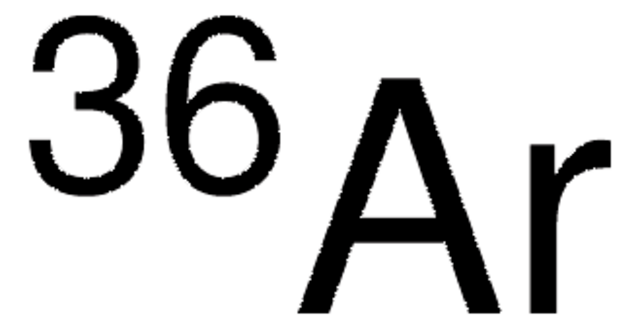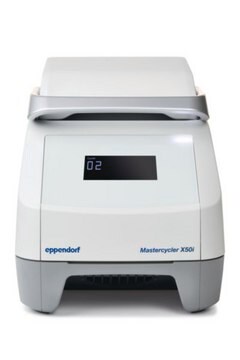768952
Argon
Messer® CANGas, 99.999%
Synonyme(s) :
Argon gas
Se connecterpour consulter vos tarifs contractuels et ceux de votre entreprise/organisme
About This Item
Formule empirique (notation de Hill):
Ar
Numéro CAS:
Poids moléculaire :
39.95
Numéro CE :
Numéro MDL:
Code UNSPSC :
12142004
ID de substance PubChem :
Nomenclature NACRES :
NA.22
Produits recommandés
Densité de vapeur
1.38 (21 °C, vs air)
Niveau de qualité
Description
Filling mass: 20g
Filling volume: 12L
Essai
99.999%
Forme
gas
pb
-185.7 °C (lit.)
Pf
-189.2 °C (lit.)
Chaîne SMILES
[Ar]
InChI
1S/Ar
Clé InChI
XKRFYHLGVUSROY-UHFFFAOYSA-N
Vous recherchez des produits similaires ? Visite Guide de comparaison des produits
Application
Argon is a rare gas that is colourless, odourless, and heavier than air. Applications for argon include use as a shielding gas for special welding problems and sensitive materials (titanium, niobium, tungsten, etc.), use as a filling gas for windows and lamps, use in spark erosion spectrometry and plasma processes. Gas is easy to handle in a small, light pressure can, while the disposable container allows for aluminium recycling when finished.
Produits recommandés
Z742374: CANgas pressure regulator
Z742379: CANgas plastic hose spout
Z742378: CANgas outer adaptor
Z742377: CANgas inner adaptor
Z742375: CANgas dosing valve
Z742379: CANgas plastic hose spout
Z742378: CANgas outer adaptor
Z742377: CANgas inner adaptor
Z742375: CANgas dosing valve
Informations légales
Messer is a registered trademark of Messer Group GmbH
Produit(s) apparenté(s)
Réf. du produit
Description
Tarif
Régulateur
Réf. du produit
Description
Tarif
À utiliser avec
Mention d'avertissement
Warning
Mentions de danger
Conseils de prudence
Classification des risques
Press. Gas Compr. Gas
Code de la classe de stockage
2A - Gases
Classe de danger pour l'eau (WGK)
nwg
Point d'éclair (°F)
Not applicable
Point d'éclair (°C)
Not applicable
Faites votre choix parmi les versions les plus récentes :
Déjà en possession de ce produit ?
Retrouvez la documentation relative aux produits que vous avez récemment achetés dans la Bibliothèque de documents.
Dapeng Liu et al.
The journal of physical chemistry. A, 123(20), 4325-4332 (2019-04-26)
For a sustainable energy future, research directions should orient toward exploring new fuels suitable for future advanced combustion engines to achieve better engine efficiency and significantly less harmful emissions. Cyclic ketones, among bio-derived fuels, are of significant interest to the
Jonas Häusler et al.
Chemistry (Weinheim an der Bergstrasse, Germany), 23(11), 2583-2590 (2016-12-04)
The first gallium-containing nitridosilicate CaGaSiN
Xiaotong Jiang et al.
Spectrochimica acta. Part A, Molecular and biomolecular spectroscopy, 191, 155-164 (2017-10-14)
The docking sites of hydrogen bonds in complexes formed between 2,2,2-trifluoroethanol (TFE), furan (Fu), and 2-methyl furan (MF) have been investigated. Using density functional theory (DFT) calculations, gas phase and matrix isolation FTIR spectroscopies, the strengths of OH⋯O and OH⋯π
T Urbańczyk et al.
Spectrochimica acta. Part A, Molecular and biomolecular spectroscopy, 196, 58-66 (2018-02-13)
Revisited study of the E3Σ1+ (63S1)←A3Π0+(53P1) transition in CdAr using both theoretical and experimental approach is presented. Systematic detection of the E3Σ1+in,υ'←A3Π0+,υ″=6 transition frequencies with higher accuracy and spectrally narrower laser extended and improved analysis and simulation of the LIF
Yahya Safari et al.
Journal of the science of food and agriculture, 98(8), 2915-2924 (2017-11-22)
Persistent sample circulation microextraction (PSCME) combined with graphite furnace atomic absorption spectrometry (GFAAS) was developed as a high pre-concentration technique for the determination of heavy metals in fish species. In this method, a few microliters of organic solvent (40.0 µL carbon
Notre équipe de scientifiques dispose d'une expérience dans tous les secteurs de la recherche, notamment en sciences de la vie, science des matériaux, synthèse chimique, chromatographie, analyse et dans de nombreux autres domaines..
Contacter notre Service technique







